featured
Glass House Expects Hit to Revenue, Profitability Following ICE Raids
Published
3 days agoon
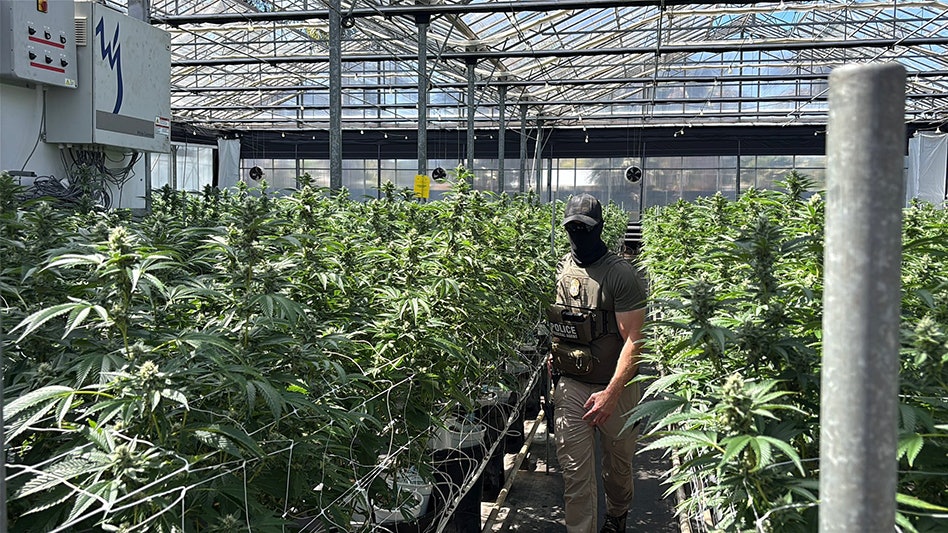
Glass House Brands executives expect the July 10 ICE raids at two of their cannabis cultivation sites in Southern California to harm their third-quarter performance, but they plan for the company to come out stronger in the long run.
Kyle Kazan, the company’s co-founder, chairman and CEO, told investors during a conference call on Aug. 13 that onboarding new farm labor contractor workers and getting them to full capacity “will take time” and impact Glass House’s financial results for the third quarter and subsequent quarters.
The U.S. Immigration and Customs Enforcement’s (ICE) search warrant operations at Glass House’s grow sites last month in Carpinteria (Santa Barbara County) and Camarillo (Ventura County) resulted in federal agents arresting 361 people and taking 14 migrant children into custody. One worker, employed by a third-party contractor, died following injuries he sustained during the raid.
According to an Aug. 4 company update from Glass House, nine of its employees were detained or arrested, while the other approximately 350 individuals detained or arrested were either employees of third-party contractors or were unassociated with the company (protestors or bystanders). After the raids, Glass House terminated its relationship with two farm labor contractors, engaged new contractors and made myriad changes to its labor practices to enhance compliance.
As a result of a reduced labor force, Glass House has scaled back new planting “more significantly” in recent weeks, Kazan told investors on Wednesday.
“In the near term, we are pushing some of our biomass processing into the fourth quarter,” he said. “Processing is the most labor-intensive activity in our cultivation at the farm, so delaying this allows us to utilize our currently reduced labor force while we ramp back up to full production. This delay will result in our sales team having less biomass products available to sell in the wholesale channel during the third quarter and will cause a meaningful reduction to revenues and profitability for the period.”
Specifically, the company reported $59.9 million in second-quarter 2025 revenue, including $42.1 million in revenue achieved from its wholesale biomass business, accounting for 70% of the total. However, Glass House executives expect third-quarter 2025 revenue to be between $35 million and $38 million—roughly $25 million to $30 million below where the company was tracking before the ICE raids.
Impacted by reduced labor, the company now expects to produce between 95,000 and 100,000 pounds of biomass for the third quarter, which represents less than 40% of what is typically expected, Glass House Chief Financial Officer Mark Vendetti told investors.
However, as the company works toward ramping up staffing, executives expect that production to double in the fourth quarter and for revenues to rebound close to last year’s fourth quarter result of $53 million.
“The average Q3 selling price for wholesale biomass is assumed to be between $178 and $183 per pound, down from $229 last year, while cost of production will be approximately $160 per pound,” Vendetti said. “The cost of production is high because of the low production in the quarter and labor inefficiency of bringing on a new workforce. We expect fourth quarter cost of production to be approximately $110 per pound as production increases and efficiency improves as the workforce gains experience.”
The third-quarter expectations compare to Glass House producing 231,000 pounds of biomass at $91 per pound in the second quarter while paying its labor contractors roughly $18.60 per hour on average. The company has 6 million square feet of cultivation facilities in the state, including 5.5 million square feet among six greenhouses on its 165-acre farm in Southern California.
Vendetti said the company anticipates gross margin in the second half of the year to be in the mid-30% range after it was 53% for the second quarter. Glass House also expects full-year 2025 revenue to be down roughly 15% from what was previously anticipated.
In addition, the company is slowing some components of its expansion, including its greenhouse No. 2 retrofit. Also, Glass House is delaying the construction of its greenhouse No. 4 retrofit, specifically related to its hemp expansion effort.
However, Glass House remains committed to hemp as a “fantastic opportunity to California’s agriculture industry and existing cannabis growers who have been burdened by compressed pricing and onerous taxes to pivot to selling hemp via interstate commerce,” Kazan said.
The CEO said the company is using its experience of a reduced labor force and scaled-back production in the third quarter as an opportunity to accelerate its automation efforts and refine operations to promote greater efficiencies for future growth.
Graham Farrar, the company’s co-founder, president and board director, said he anticipates Glass House to “come out of this” stronger than it went in.
“We’ve always been looking at automation and efficiency from day one,” he said. “We’ve very much been a long-term focused company. What this has done is accelerated and broadened our scope on that. … over time, we’ll lower our costs quicker.”
To help ensure the company doesn’t fall victim to—or at least minimizes the impacts of—future ICE raids, Glass House hired compliance consultants, including Julie Myers Wood, the former director of ICE and assistant secretary of Homeland Security, to assist with employee eligibility from contractors. In addition, all employees and farm labor are now E-verified with enhanced age-gating controls, and the company signed a labor peace agreement with the Teamsters.
Farrar said he wouldn’t wish the impacts from the ICE raids on anybody and that the general impacts are not cannabis-specific, but rather agricultural.
“If this is the new world that agriculture is going to be living in, I would much rather have the first-mover advantage and be at the top of the mountain first rather than last,” he said. “So, we made the decisions to do the things that we did so that we’re essentially bulletproof on everything going forward and don’t have to worry about what happens next.”
With those changes in place, the company is now focused on getting back to full operations, Kazan said.
“Like every obstacle we faced over 10 years, we will persevere and be that much more resilient as a company,” he said. “It is this grit developed as a team, more than anything else, which makes us the outlier in the cannabis industry.”

Author: mscannabiz.com
MScannaBIZ for all you Mississippi Cannabis News and Information.
You may like
-


Texas Crime Labs Say They Don’t Have Enough Resources To Test Hemp Products For THC As Lawmakers Consider Ban
-


Trump on changes to marijuana policy: 'We're looking at it'
-


Realtors’ Stolen Credit Cards Are Used to Build an Illegal Marijuana Farm
-
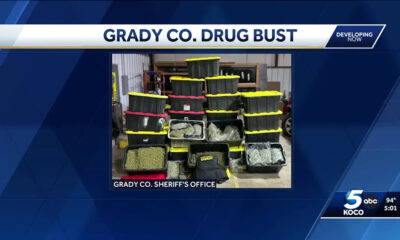

Grady County Sheriff's Office makes arrests in illegal marijuana bust
-
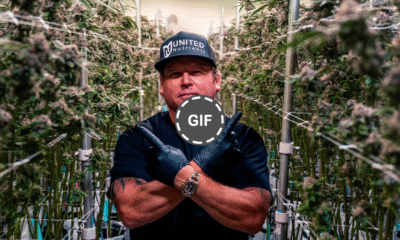

High Times Was The Most Influential Publication Of My Life
-


Revelry NYC 2025: Inside New York’s Cannabis Culture & Industry Festival
featured
Texas Crime Labs Say They Don’t Have Enough Resources To Test Hemp Products For THC As Lawmakers Consider Ban
Published
59 minutes agoon
August 17, 2025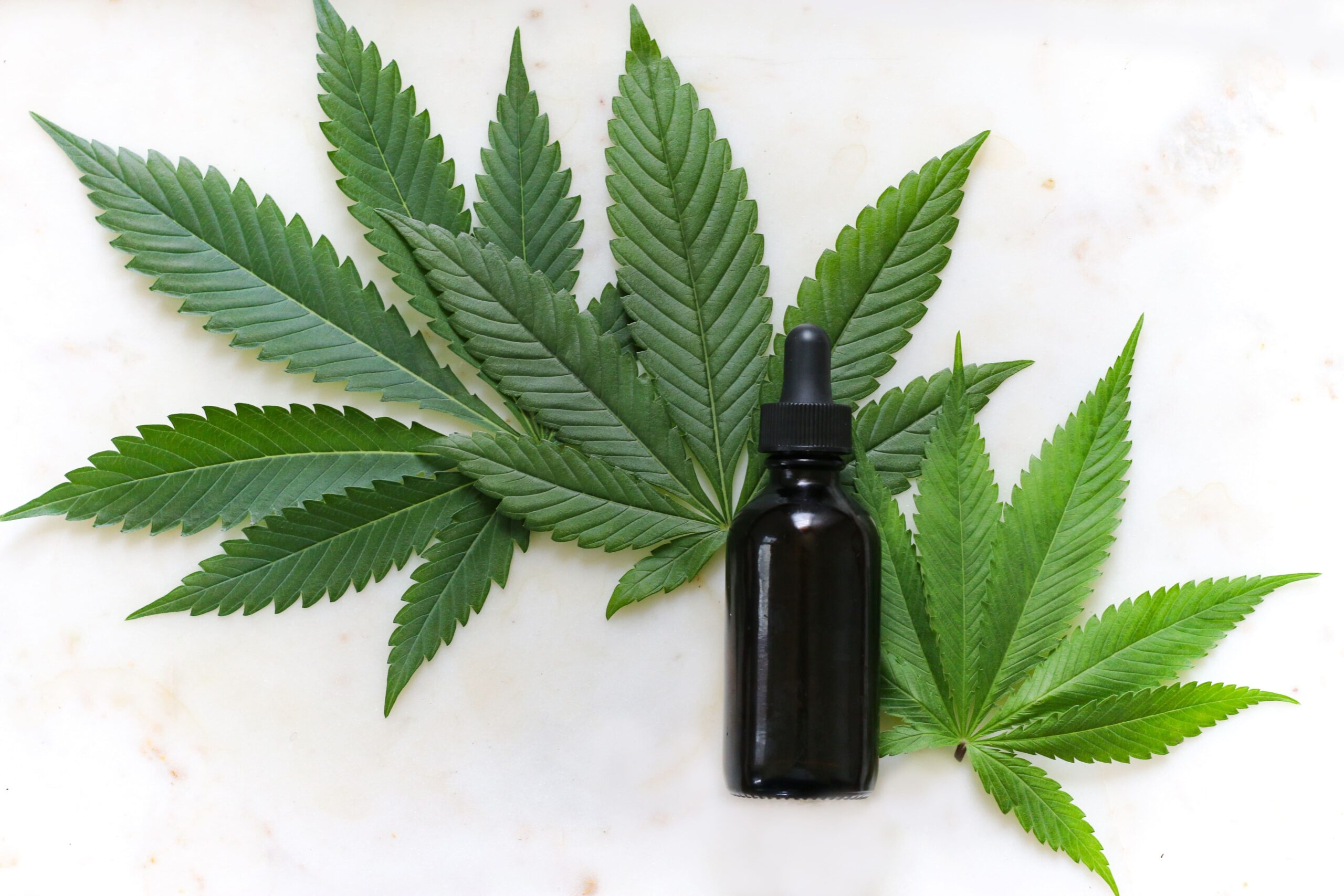
“I’m going to prioritize the fentanyl before hemp, and every dollar I spend on testing drugs is a dollar I don’t have to spend on testing a sexual assault kit.”
By Stephen Simpson, The Texas Tribune
As Texas lawmakers debate whether to regulate or ban THC products, officials with the state’s crime labs say they don’t have the resources currently to enforce whatever law is passed.
“From a crime lab perspective, mercifully, we don’t have a dog in that fight. I really don’t care. Just tell me what I need to test, and then I need resources to be able to provide that result,” Peter Stout, president and chief executive officer for the Houston Forensic Science Center, told The Texas Tribune after he testified before the House Public Health Committee on Wednesday. “Otherwise, I become the reason the wheel falls off this wagon, which has basically been the last six years now.”
Wednesday’s committee hearing centered on House Bill 5, which would create a blanket ban on products containing any “detectable amount of any cannabinoid” other than cannabidiol and cannabigerol, better known as CBD and CBG, non-intoxicating components of cannabis. This bill would eliminate the majority of hemp products, including those that are legal under the federal definition.
”There’s been countless reports of artificial and synthetic cannabinoids and their effects on the consumer, and these products have become readily available,” said Rep. Gary VanDeaver, R-New Boston, the committee’s chair and HB 5’s author. “Some of these products are marketed in a way that is attractive to children, for example common food products, like candy.”
The Senate’s version of the bill also calls for a ban, but since Gov. Greg Abbott (R) earlier this year vetoed similar legislation that would have banned THC, some lawmakers have signaled they’d support more regulations over a ban.
Kim Carmichael, spokesperson for House Speaker Dustin Burrows, R-Lubbock, told The Texas Tribune that the House hasn’t committed to a ban.
“HB 5 was filed as a similar bill to what the House passed in the regular session, because that’s the most logical starting point for negotiations,” Carmichael said. “Since it passed in that form, members believed they should resume debate where it ended up. It would still go through the process of a public hearing and floor debate, so where it ends up is unknown at this time.”
Experts invited by lawmakers on Wednesday to talk about THC largely focused on the health dangers of THC, the possible criminal networks that underlie the industry, and the impossible task of enforcement.
Alice Amilhat, assistant chief of the crime laboratory division for the Texas Department of Public Safety, told lawmakers the DPS crime lab is equally overwhelmed with requests, and no matter what lawmakers decide, it will be an expensive process.
“I don’t have a financial statement for you, but if a ban goes through, the testing process will be easier, but the problem is we just don’t know if the caseload will increase as well,” she said. “We don’t know how many cases will come in, we don’t know how many seizures, we don’t know how much law enforcement will need our support.”
Crime labs in Texas have found themselves in a no-win situation on how to regulate THC. If a ban goes through, testing will be relatively easy because all crime labs need to determine is if there’s THC in the substance, but it will still mean more cases for them. Not banning, but regulating THC will also drive their caseloads up and the testing process can become more expensive and time-consuming if they have to spend time trying to detect permissible amounts of THC in substances. Both scenarios are unsustainable for crime labs, which are battling deadlier drugs, with the current resources they have.
“There are only 266 licensed drug chemists in the state,” Stout told lawmakers. “I’m paying attention to fentanyl, and when you guys get it figured out [with THC], then I will invest in equipment and other stuff for testing.”
Stout said crime labs across the state have backlogs on cases that reach hundreds to thousands deep, and compared to sexual assault and firearms cases, THC testing will be a lower priority.
“I’ve been pretty vocal that I’ve not made the investments to test hemp in Houston at the scale that we probably would need to, because I can’t keep up simply with the pills that have fentanyl,” he told the Tribune. “So yeah, I’m going to prioritize the fentanyl before hemp, and every dollar I spend on testing drugs is a dollar I don’t have to spend on testing a sexual assault kit.”
DPS handles about half of the forensic work in the state, and municipal, county, or regional labs handle the rest. Each has its source of funding that can be inconsistent, but none of it is enough, according to crime labs.
Stout said the average crime lab across the country gets around $600 in funding per case, when laboratories probably need $2,500 in funding per case to cover personnel, time, and equipment. He said that, beyond the money problem, the time-consuming nature of training is a concern, and there is no pool of licensed drug chemists waiting for a job.
“We have under-resourced forensic laboratories for so long, there is no pipeline or workforce,” he said. “The people aren’t there, and the money is not there.”
The ongoing challenges at crime labs have resulted in cases taking years to resolve. Crime labs have no control over their workload—whatever substance or case law enforcement decides to focus on will impact crime labs, whether they are ready for it or not.
“Okay, guys, you also need me to answer you on that sexual assault kit and that homicide, which ones do you want me to do first?” Stout said. “Because we can’t afford to do them all. Help me out here.”
Stout said crime labs need more money and time.
“And I get that is exactly the wrong answer, that nobody wants to hear. They want to give us a big pot of money and go on to other things, but it doesn’t work that way,” he said.
This article originally appeared in The Texas Tribune at https://www.texastribune.org/2025/08/13/texas-crime-labs-THC-hemp-ban-regulations/.
The Texas Tribune is a member-supported, nonpartisan newsroom informing and engaging Texans on state politics and policy. Learn more at texastribune.org.
Photo courtesy of Kimzy Nanney.

Author: mscannabiz.com
MScannaBIZ for all you Mississippi Cannabis News and Information.
featured
High Times Was The Most Influential Publication Of My Life
Published
21 hours agoon
August 16, 2025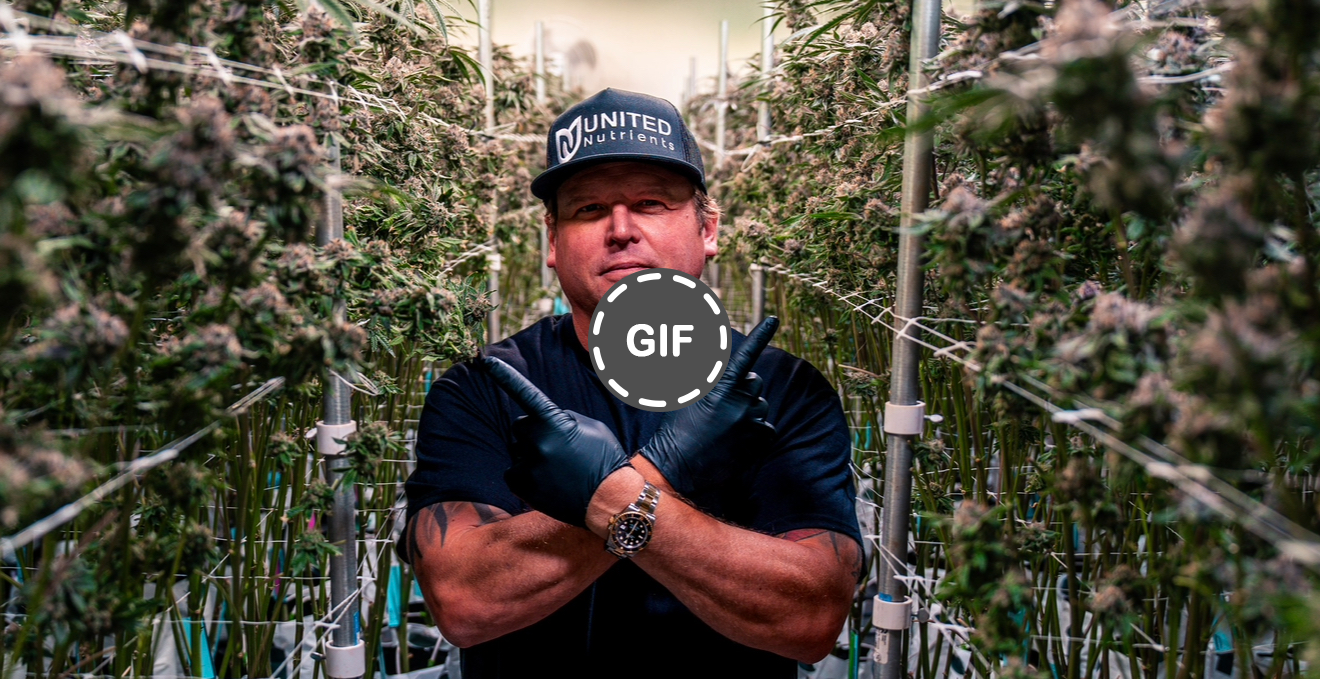
What does it mean to you? So often, we forget that each of us sees the world through a unique lens. While we may share an experience, our exact perspective is ours alone.
Many of us discovered High Times during different chapters of our lives. For me, it started in childhood. I grew up reading the magazine, drawn to its bold voice and rebellious energy. It inspired me. It offered a sense of freedom—and more than anything, it reassured me that I wasn’t alone in believing this plant made life better. Whether cannabis helped us feel balanced, feel whole, or simply feel good, High Times was a beacon for those of us who saw it as more than just a vice.
Today, cannabis is often framed as a safer alternative to alcohol or tobacco. While that may be true, that narrative feels incomplete. For those of us who came up in the culture, the plant was never just about harm reduction. Our early experiences weren’t driven by taste, branding, or appearance. They were about how it made us feel.
We smoked what we could get our hands on. Brown buds with stems and seeds—sometimes green, sometimes dry and dusty, sometimes damp and moldy. The names were basic or nonexistent. We called it green, brown, dirt, chronic, bammer. No one was posting nug photos or comparing flavor profiles to candy. We were in it for the high, for the relief, and for the connection.
For me, cannabis was a constant. Before school, at lunch, after school. We masked the smell with gum, sprays, and excuses. Everyone around me smoked. My friends, the dealers, the heads at shows, the random adults who still had a foot in the underground. Often, people sold just to afford their own habit. The culture grew organically from the lifestyle. And while we were getting high, we were also medicating—whether we called it that or not.
Cannabis is the most diverse cultivated plant on the planet. No other species has been shaped and selected into as many distinct types. It’s an adaptogen, and our bodies are equipped with cannabinoid receptors that allow the plant to affect us in complex and deeply personal ways. This is part of what makes it so difficult for doctors to prescribe in a conventional sense. One cultivar might energize one person and sedate another. Some feel calm, others paranoid. Its effects are influenced by body chemistry, food, mood, stress, time of day—even the weather. It is not one-size-fits-all.
High Times helped us make sense of that variability in the plant and the culture around it. It was the most influential publication of my life. I still have my collection from the early 1990s, each issue stacked with care and reverence. The article that captivated me most growing up was the “Million Dollar Grow Room.” Years later, I was honored to be featured in the second edition of that same article. That moment of reflection and recognition remains one of the defining highlights of my career.
Over the years, I’ve built lasting friendships with former High Times editors, writers, and photographers. These were true believers who helped shape the voice of the movement. Now, a new generation carries that legacy forward. And it is not a light burden.
High Times is more than a brand. It is a cultural institution. It carries the stories of survivors, visionaries, and revolutionaries. From Jack Herer to Michael Kennedy—from legalization architects to counterculture icons like Steven Hager—the magazine has always served as a platform for voices pushing against the mainstream. And we can’t forget the countless unnamed contributors, those who submitted stories and photos without credit or compensation, simply for the love of the plant and the mission.
The groundwork has been laid. But the story is still being written. The cannabis industry continues to evolve, and with it, our responsibilities. We owe everything to those who came before us. This plant has traveled across continents, passed from hand to hand, seed to seed. In the past seventy years alone, we’ve witnessed an explosion of cross selection and hybridization unlike anything else in agriculture.
High Times was a catalyst throughout that process. From the 1970s through the later part of the 2010s, it helped shape what the cannabis community would become. Much of what we see now in newer publications and across social media can be traced back to the culture that High Times helped nurture and protect.
I’m an optimist. I believe the best chapters are still ahead. The High Times name still matters. It still carries weight. It still represents something sacred. And if stewarded with care, it can continue to be a voice for the culture and a champion of the plant. The impact the brand has already made is immeasurable—but its potential is even greater. Our passion is real. Our connection is deep. And we are fortunate to be part of something larger than ourselves—part of a movement, part of a legacy, part of a plant that makes the world better, one person at a time.
This article is from an external, unpaid contributor. It does not represent High Times’ reporting and has not been edited for content or accuracy.

Author: mscannabiz.com
MScannaBIZ for all you Mississippi Cannabis News and Information.
featured
Revelry NYC 2025: Inside New York’s Cannabis Culture & Industry Festival
Published
22 hours agoon
August 16, 2025
In just a few short years, Revelry NYC has become the cannabis event where New York’s culture, commerce, and community converge. This year, it’s taking over Pier 36 in Manhattan on September 12–13, 2025, and according to co-founder Lulu Tsui, it’s bigger, more inclusive, and more dialed-in than ever.
As the Chief Experience Officer for On The Revel, Tsui has spent years designing events that bridge the gap between New York’s rapidly evolving cannabis industry and the community that sustains it.
“We create spaces, trade shows, events, and industry nights specifically for the cannabis industry,” Tsui told me. “To gather good people who are working in the industry, interested in the industry, and who want to support the community.”
Lulu’s story starts far from the Manhattan waterfront. Her family immigrated from northern China to Eugene, Oregon, in the late 1970s, a place she describes as “a little hippie college town that hasn’t changed since the ’60s.”
The people who helped her family adjust to life in America were cannabis growers and distributors. “I was just raised by aunties and uncles that had a very different viewpoint towards cannabis and psychedelics,” she said. This was in stark contrast to her “super hardcore communist dragon” parents, who, like many Chinese immigrants, were hesitant and still saw cannabis simply as “drugs.”
That early exposure shaped her belief that “community and how you talk about it, how you work with it, can change hearts and minds in such a huge way.”
Her first cannabis experience came at 13, facilitated by her aunt, followed by an equally intentional introduction to psychedelics from her uncle. “It’s not a taboo thing. It’s not a scary thing. It’s a healing thing.”
Photo: Angie Vasquez
Designing Experiences Like No One Else
Tsui and her co-founder, Jacobi Holland, approach event production like UX designers. “We’re the most annoying group to work with because we talk through the flow for every interaction,” she laughed. “From sponsors and exhibitors to attendees and speakers, we design based on what people need.”
They also have the rare advantage of having worked as operators themselves, Tsui in the Washington State market, Holland in Colorado, bringing firsthand understanding to every decision. “Would you have a shoe designer design a shoe if they’ve never worn shoes before?” she asked. “We know the challenges operators face.”
The team behind Revelry reads like a cross-disciplinary dream roster:
- Jason Starr, a human rights lawyer and co-author of New York’s MRTA legalization bill.
- Peter Marcato, neuroscientist and head of community and content.
- Gerald Dean, a veteran of sales and trade show production.
- Saki Fenderson, producer, activist, and longtime community organizer.
- Delilah Ware is, fresh graduate of LIM College’s Cannabis Program.
Photo: Erica Harris
For Tsui, diversity goes beyond surface appearances. “Diversity is your personal background, education, life story, religion, all of those things. We have multi-dimensional humans who all believe in being of service.”
From a Gym Basement to Pier 36
Revelry’s first trade show took place in early 2023 in the basement of a gym. Even then, the formula clicked: 60 exhibitors, 44 of the state’s 60 licensed dispensaries, and a lot of handshakes.
Now, with their sixth trade show approaching, the scale has exploded. This year’s Buyers’ Club will feature 200+ legal New York cannabis brands and over 400 retailers.
“We’re calling it the New York Hunger Games,” Tsui joked. “There’s always chaos in the headlines, but what we’re trying to do is highlight the people who are still pushing forward as best as they can.”
A Lineup as Bold as the City Itself
This year’s Revelry Festival stage is stacked with talent that embodies New York’s unmatched cultural energy. Black Thought brings lyrical mastery, while Angel & Dren infuse the waterfront with their genre-bending DJ sets. Phony Ppl will deliver their signature blend of soul, R&B, and hip-hop, joined by the culinary creativity of Chef Nikki and the Latin-inspired sounds of Dos Flakos. Scottie Beam takes the mic for a keynote conversation, and Eagle Witt brings the laughs with his sharp comedic edge.
It’s a lineup that reflects exactly what Revelry stands for: the seamless blend of serious industry connections with the art, music, and flavor that make New York a global icon.
Building on the success of May 2025’s Buyers’ Club, which drew 1,800+ attendees and connected 300+ buyers with 160+ brands, this September’s festival is set to further cement New York’s role as a cannabis powerhouse.
Two Days, Two Experiences
Day 1 – Friday, Sept. 12: Industry-Only Buyers’ Club
This is all about business. “Ninety percent of our attendees are buyers,” Tsui explained. “You’re talking to the decision makers who can give you a purchase order or become a hot lead.”
Day 2 – Saturday, Sept. 13: Revelry Festival
When the doors open to the public, the vibe shifts from trade show floor to full-blown cultural celebration. Music, food, live art, and consumer education panels set the tone for a uniquely New York experience.
This year’s programming includes:
- Consumer Education & “Keeping It Real” Brand-Building panels
- OG New York Legacy Strain Stories
- A Psychedelics Panel previewing On The Revel’s January psychedelic conference
- Keynote interviews with Scotty Beam and Black Thought
- Live performances from Phony Ppl, Angel + Dren, Dos Blacos, and more surprise guests
And yes, Tsui is trying to bring in roller disco.
Navigating Stigma and Winning Over Venues
Landing a venue like Pier 36 is not as simple as signing a contract and mailing in a deposit. For Tsui and her team, it can be a year-long process of building trust, answering concerns, and proving that a large-scale cannabis event can run as smoothly and as safely as any other major cultural gathering in New York City.
“It usually takes me and the team a year to get sign-off for a festival this large,” Tsui said. While sales managers at potential venues are often excited about the idea, the final decision-makers can be more cautious. “We’re still dealing with that stigma, what about the children, there’s going to be crime, all of those misconceptions,” she explained.
Overcoming that hesitation requires more than just promises. Revelry leans on a proven track record: years of hosting high-profile, incident-free events, maintaining clear communication with venue partners, and leaving every location in better condition than they found. This level of professionalism has not only earned them repeat invitations but also allowed them to secure spaces that are rarely, if ever, used for cannabis-related gatherings.
By combining transparency, meticulous planning, and genuine respect for their hosts, Tsui and her team are showing New York and the rest of the country that cannabis culture can be celebrated openly, responsibly, and with the same level of polish as any top-tier music festival or industry convention.
New York Cannabis Culture: Quiet but Powerful
Unlike California, where cannabis can be a loud part of personal identity, Tsui says most New Yorkers consume quietly. “Everybody I know consumes weed, they’re just not loud about it. It’s part of their creative process, their hiking trip, their meditation, their breathwork.”
Part of Revelry Festival’s mission is to grow the “addressable consumer market” by making cannabis as integrated into lifestyle culture as food, music, and art.
Not Just Another Trade Show
Trade show fatigue is real, but Tsui believes Revelry thrives because it’s more than a convention center with booths. “We don’t see things as transactions. We’re very rich in culture, community, and industry currency.”
Her team listens closely to feedback after every event and experiments with new ideas, even if they might fail. “Most of the time it hits. Sometimes it doesn’t. But no one’s pointing fingers.”
This openness to iteration keeps the event fresh, and the mix of business-first focus on Day 1 and community celebration on Day 2 ensures that both sides of the industry get value.
The Bigger Picture
Tsui envisions a future where cannabis events in New York are as culturally embedded as art fairs and music festivals. “Let’s do what New York does best with culture. Let’s bring the food. Let’s bring music. Let’s bring good vibes. Let’s bring cannabis.”
By carefully curating both the brands that exhibit and the audience that attends, Revelry NYC has become a trusted platform for genuine connection between legacy and legal operators, between industry insiders and consumers, and between cannabis and the broader cultural fabric of the city.
Revelry NYC 2025 At a Glance
Location: Pier 36, Manhattan
Dates:
- Friday, Sept. 12 – Industry-only Buyers’ Club (Brands, Cultivators, Processors, Retailers, Microbusinesses, Licensed Operators)
- Saturday, Sept. 13 – 21+ Public Revelry Festival
Highlights:
- 200+ Legal NY Cannabis Brands
- 400+ Retailers & Buyers
- Consumer Education & Brand Panels
- OG Legacy Strain Stories & Psychedelics Discussions
- Live Performances & Surprise Guests
As I wrapped up our conversation, Tsui reminded me:
“We’re just trying to create spaces for people to gather, and I think we’re pretty good at it.”
For anyone invested in the future of New York cannabis, whether you’re a brand, buyer, advocate, or consumer, Revelry NYC isn’t just another date on the calendar. It’s where the state’s cannabis culture comes to life.

Author: mscannabiz.com
MScannaBIZ for all you Mississippi Cannabis News and Information.

Texas Crime Labs Say They Don’t Have Enough Resources To Test Hemp Products For THC As Lawmakers Consider Ban

Trump on changes to marijuana policy: 'We're looking at it'

Realtors’ Stolen Credit Cards Are Used to Build an Illegal Marijuana Farm

Grady County Sheriff's Office makes arrests in illegal marijuana bust

High Times Was The Most Influential Publication Of My Life

Revelry NYC 2025: Inside New York’s Cannabis Culture & Industry Festival

Revelry NYC 2025: Inside New York’s Cannabis Culture & Industry Festival

Indian Tribes See Opportunity In Hemp THC Products, Even In States That Continue Marijuana Criminalization

Two Oakland cannabis dispensaries targeted again by ram-raiding burglars

Trump on changes to marijuana policy: 'We're looking at it'

Bill Maher Takes Credit for Possibility Trump Might Reshedule Marijuana

Social cannabis use rules will be published Friday

Over 2,000 plants uncovered at marijuana grow-op in Brantford – CP24

Mass. residents sound off on social marijuana use as rules are finalized – NBC Boston

Newly Posted Texas Medical Marijuana Rules Will Let Doctors Recommend New Qualifying Conditions For Patients

MNPD seizes pounds of marijuana, arrests man with 7 outstanding warrants

Can Cannabis Help Make The Brain Younger

Klutch Cannabis Opening 5th Ohio Dispensary in Northfield

Undercover video exposes illegal THC sales at North Texas vape shops

Book Review: The Traveling Cannabis Writer’s Guide to America’s Hidden Gems

WKRN: marijuana reclassification impact

Texas Senators Unanimously Pass Hemp THC Ban Bill Hours After Governor Convenes Second Special Session

New York’s cannabis agency allowed dispensaries to open too close to schools | Videos

Texas, California Governors Collide Over Redistricting; Hemp Lies in the Crosshairs

Alert: Department of Cannabis Control updates data dashboards with full data for 2023

Connecticut Appoints The US’s First Cannabis Ombudsperson – Yes there is a pun in there and I’m Sure Erin Kirk Is Going To Hear It More Than Once!

5 best CBD creams of 2024 by Leafly

EU initiative begins bid to open access to psychedelic therapies
New Study Analyzes the Effects of THCV, CBD on Weight Loss

Free delta-9 gummies from Bay Smokes

5 best autoflower seed banks of 2024 by Leafly

Discover New York’s dankest cannabis brands [September 2024]

Curaleaf Start Process Of Getting Their Claws Into The UK’s National Health System – With Former MP (Resigned Today 30/5/24) As The Front Man

May 2024 Leafly HighLight: Pink Runtz strain

Mississippi city official pleads guilty to selling fake CBD products

Press Release: CANNRA Calls for Farm Bill to Clarify Existing State Authority to Regulate Hemp Products

Local medical cannabis dispensary reacts to MSDH pulling Rapid Analytics License – WLBT

Horn Lake denies cannabis dispensary request to allow sale of drug paraphernalia and Sunday sales | News

5 best THC drinks of 2024 by Leafly

Nevada CCB to Accept Applications for Cannabis Establishments in White Pine County – “Only one cultivation and one production license will be awarded in White Pine County”

6 best CBD gummies of 2024 by Leafly

The Daily Hit: October 2, 2024

5 best delta-9 THC gummies of 2024 by Leafly

Weekly Update: Monday, May 13, 2024 including, New Guide for Renewals & May Board meeting application deadline

PRESS RELEASE : Justice Department Submits Proposed Regulation to Reschedule Marijuana

People In This State Googled ‘Medical Marijuana’ The Most, Study Shows

Thailand: Pro-cannabis advocates rally ahead of the government’s plan to recriminalize the plant

5 best THCA flower of 2024 by Leafly
Trending
-

 California Cannabis Updates1 year ago
California Cannabis Updates1 year agoAlert: Department of Cannabis Control updates data dashboards with full data for 2023
-

 Breaking News1 year ago
Breaking News1 year agoConnecticut Appoints The US’s First Cannabis Ombudsperson – Yes there is a pun in there and I’m Sure Erin Kirk Is Going To Hear It More Than Once!
-

 best list1 year ago
best list1 year ago5 best CBD creams of 2024 by Leafly
-

 Business11 months ago
Business11 months agoEU initiative begins bid to open access to psychedelic therapies
-

 cbd1 year ago
cbd1 year agoNew Study Analyzes the Effects of THCV, CBD on Weight Loss
-

 Bay Smokes1 year ago
Bay Smokes1 year agoFree delta-9 gummies from Bay Smokes
-

 autoflower seeds11 months ago
autoflower seeds11 months ago5 best autoflower seed banks of 2024 by Leafly
-

 cannabis brands11 months ago
cannabis brands11 months agoDiscover New York’s dankest cannabis brands [September 2024]




